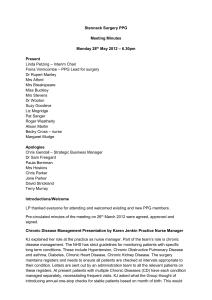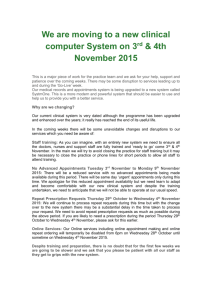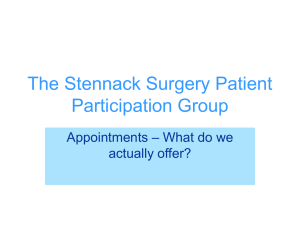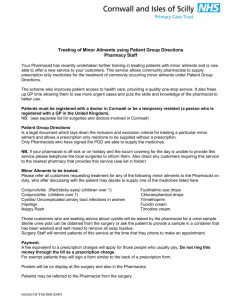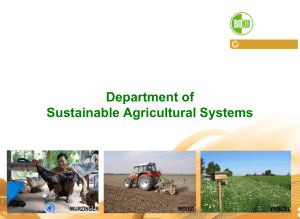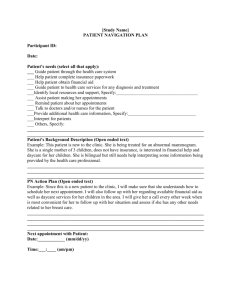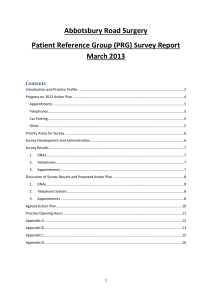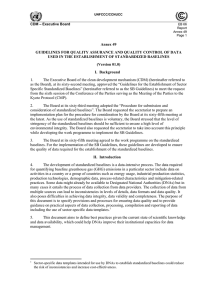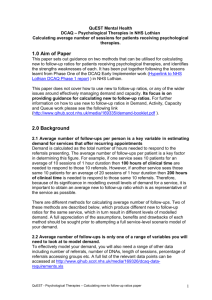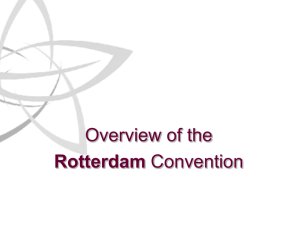Minutes of the Meeting, 30 th September 2015
advertisement
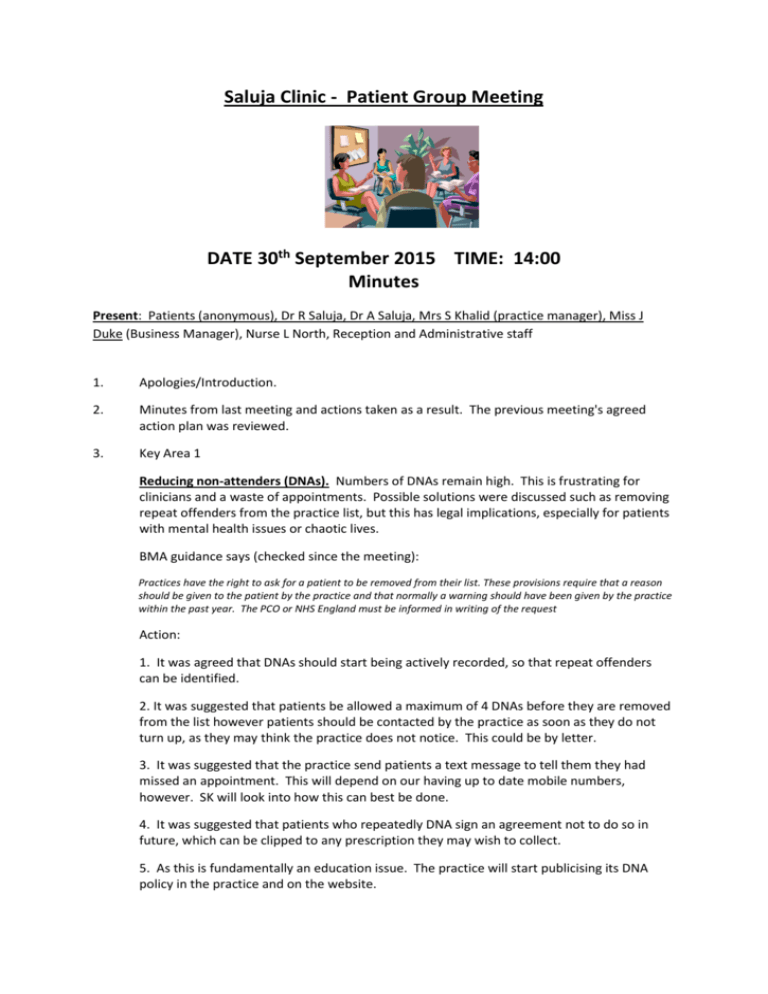
Saluja Clinic - Patient Group Meeting DATE 30th September 2015 TIME: 14:00 Minutes Present: Patients (anonymous), Dr R Saluja, Dr A Saluja, Mrs S Khalid (practice manager), Miss J Duke (Business Manager), Nurse L North, Reception and Administrative staff 1. Apologies/Introduction. 2. Minutes from last meeting and actions taken as a result. The previous meeting's agreed action plan was reviewed. 3. Key Area 1 Reducing non-attenders (DNAs). Numbers of DNAs remain high. This is frustrating for clinicians and a waste of appointments. Possible solutions were discussed such as removing repeat offenders from the practice list, but this has legal implications, especially for patients with mental health issues or chaotic lives. BMA guidance says (checked since the meeting): Practices have the right to ask for a patient to be removed from their list. These provisions require that a reason should be given to the patient by the practice and that normally a warning should have been given by the practice within the past year. The PCO or NHS England must be informed in writing of the request Action: 1. It was agreed that DNAs should start being actively recorded, so that repeat offenders can be identified. 2. It was suggested that patients be allowed a maximum of 4 DNAs before they are removed from the list however patients should be contacted by the practice as soon as they do not turn up, as they may think the practice does not notice. This could be by letter. 3. It was suggested that the practice send patients a text message to tell them they had missed an appointment. This will depend on our having up to date mobile numbers, however. SK will look into how this can best be done. 4. It was suggested that patients who repeatedly DNA sign an agreement not to do so in future, which can be clipped to any prescription they may wish to collect. 5. As this is fundamentally an education issue. The practice will start publicising its DNA policy in the practice and on the website. 4. Key Area 2 Knowledge about medication. Patients are unaware that antibiotics are not appropriate for all illnesses and that overuse/misuse has adverse implications as they can cease to be effective. Patients can be very demanding about this and put pressure on their GP. Action: It is important that the practice continues its policy of educating patients that antibiotics are not suitable for viral infections, such as colds and flu, and that for simple ailments, it is better to either ride it out or to use over-the-counter medication such as paracetamol to help with symptoms. Patients who are entitled to free prescriptions however still prefer to come in and get a prescription for over the counter medications as it prevents their having to pay. This process of education will be done by (i) Clinician reviews of antibiotic prescribing on a regular basis (ii) Educate the patient population via newsletter, practice website and facebook page, and posters in the waiting room. It is important that resources are offered in different languages. It was suggested that a PowerPoint presentation be prepared to be shown on the TV screen in the waiting room. (iii) Publicise the minor ailments scheme offered by local pharmacies to encourage patients with a cough or cold to go to their pharmacy instead of their GP. SK is to look into this scheme and report back to the group. 5. Key Area 3 Reducing Accident and Emergency admissions. The group discussed how the provision of telephone consultations and recruitments of more staff had greatly improved access via the phone for appointments and this is expected to reduce attendances at A&E. The group was reminded that online appointments are also available for patients to book at any time day or night. Action: the practice will continue to monitor patient access and A&E attendances, so that the situation continues to improve. Minutes of the meeting are to be circulated to all attendees to ensure everyone agrees they are a true reflection of the discussion. The date of the next meeting is to be agreed. It was agreed that present members will endeavour to recruit other patients who may be interested in attending, especially those from underrepresented groups. There being no other business, the meeting closed.
